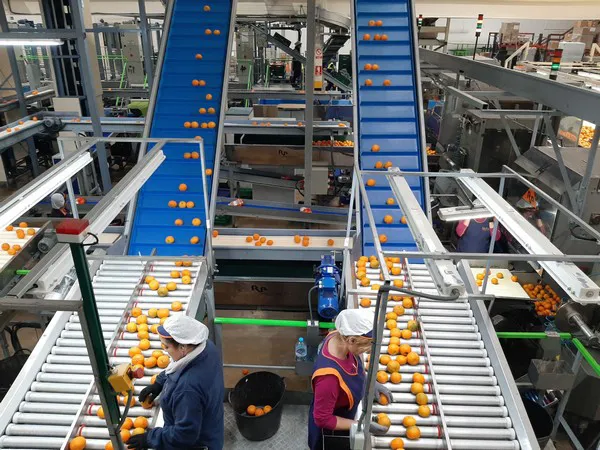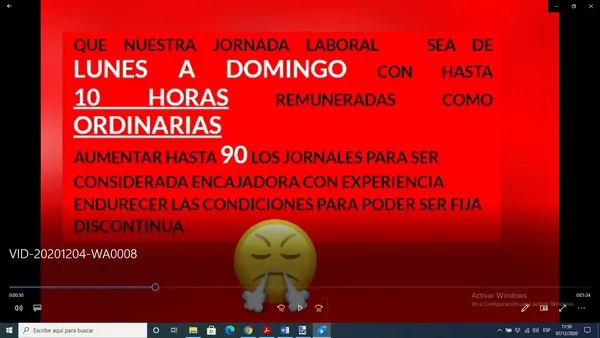The Citrus Management Committee (CGC) and Cooperatives Agro-alimentàries of the Region of Valencia have denied that their platform called to “deregulate” work in the handling centers to set a 10-hour working day from Monday to Saturday, or even Sunday, as has been deliberately communicated.
 A handling line with several workers
A handling line with several workers
The employer has thus wished to denounce the misinformation that CC.OO. and UGT have been spreading since last Friday, when the unions unilaterally broke the negotiations of the Citrus Handling and Packaging Agreement and called a strike from December 14 to 20. In order to mobilize the workers, the unions are using pamphlets and even videos shared on social media to claim that the employers have positions that exceed the limits of the current labor regulations. The only truth, however, is that the business platform persists in its efforts to defend the sector's competitiveness and has proposed alternatives to preserve labor flexibility and at the same time guarantee reconciliation with family life, always respecting legal breaks and the limit of 40 hours of work a week.
|
|
|
Frames of a video shared by CC. OO. explaining the alleged reasons for the workers to mobilize
Last Friday, the employers proposed new formulas to be able to provide an agile, quality service and avoid protests. Thus, a double alternative was proposed: work from Monday to Saturday for a maximum of 8 hours a day with the aforementioned limit of 40 ordinary weekly hours, or work from Monday to Friday up to a maximum of 9 hours, only on some days in both cases and always respecting that limit, compensating any such excesses with off days). Each handling center would have the possibility to choose between one of the two alternatives. In this way, work could be organized by shifts in order to comply with the prevention and safety measures for COVID, and with the just-in-time service required by large European distributors.
However, the position of the trade unions remained unacceptable. The negotiation could not move forward because CC.OO. and UGT proposed a shift from Monday to Friday in which any excess over the 8 hours a day –the ninth hour– had to be communicated 48 hours in advance and remunerated with a 50% increase over the ordinary pay. This would mean that, in practice, they would end up not being done, making it impossible to meet customer needs and market demands.
For more information:
 Citrus Management Committee
Citrus Management Committee
www.citricos.org
![]() Cooperatives Agro-alimentàries
Cooperatives Agro-alimentàries
www.cooperativesagroalimentariescv.com


